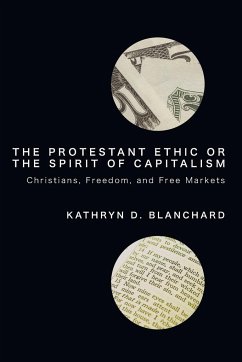Any vision of capitalism's future prospects must take into account the powerful cultural influence Catholicism has exercised throughout the world. The Church had for generations been reluctant to come to terms with capitalism, but, as Michael Novak argues in this important book, a hundred-year-long debate within the Church has yielded a richer and more humane vision of capitalism than that described in Max Weber's classic The Protestant Ethic and the Spirit of Capitalism. Novak notes that the influential Catholic intellectuals who, early in this century saw through Weber's eyes an economic system marked by ruthless individualism and cold calculation had misread the reality. For, as history has shown, the lived experience of capitalism has depended to a far greater extent than they had realized on a culture characterized by opportunity, cooperative effort, social initiative, creativity, and invention. Drawing on the major works of modern Papal thought, Novak demonstrates how the Catholic tradition has come to reflect this richer interpretation of capitalist culture. In 1891, Pope Leo XIII condemned socialism as a futile system, but also severely criticized existing market systems. In 1991, John Paul II surprised many by conditionally proposing "a business economy, a market economy, or simply free economy" as a model for Eastern Europe and the Third World. Novak notes that as early as 1963, this future Pope had signaled his commitment to liberty. Later, as Archbishop of Krakow, he stressed the "creative subjectivity" of workers, made by God in His image as co-creators. Now, as Pope, he calls for economic institutions worthy of a creative people, and for political and cultural reformsattuned to a new "human ecology" of family and work. Novak offers an original and penetrating conception of social justice, rescuing it as a personal virtue necessary for social activism. Since Pius XI made this idea canonical in 1931, the term has been rejected by the Right as an oxymoron and misused by the Left as a party platform. Novak applies this newly formulated notion of social justice to the urgent worldwide problems of ethnicity, race, and poverty. His fresh rethinking of the Catholic ethic comes just in time to challenge citizens in those two large and historically Catholic regions, Eastern Europe and Latin America, now taking their first steps as market economies, as well as those of us in the West seeking a realistic moral vision.
Hinweis: Dieser Artikel kann nur an eine deutsche Lieferadresse ausgeliefert werden.
Hinweis: Dieser Artikel kann nur an eine deutsche Lieferadresse ausgeliefert werden.








